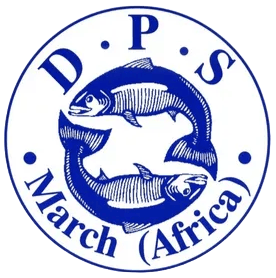
Transnet Freight Rail and Portos e Caminhos de Ferro de Moçambique (CFM – Railways of Mozambique) have signed a historic agreement to introduce a cross-border export channel for chrome that will remove hundreds of trucks from the roads in the coming weeks.
Transnet Freight Rail (TFR) announced in a statement on Friday that it had signed the agreement with CFM, its Mozambican railways counterpart. The agreement will allow for the immediate implementation of a train run through model that will see exports of chrome and ferrochrome move seamlessly from Belfast in Mpumalanga, direct to the Port of Maputo in Mozambique.
Transnet said the new model would see consignments of 50 chrome and ferrochrome wagonloads being hauled by two 43D diesel locomotives from Belfast straight through to the Port of Maputo.
The current operating model involves four diesel locomotives hauling 50 wagons from Steelpoort to Belfast. In Belfast the wagons are exchanged for four electric locomotives before the cargo then travels to Komatiepoort where it is hauled by two CFM diesel locomotives to Maputo. This model requires five crews from origin to destination and results in significant time delays each time the locomotives are exchanged.
The new model does not require the exchange of locomotives and will reduce the return transit time by 12 hours, while improving efficiency and crew requirements.
“This will allow the current 15 trains per week to be increased to 21 per week, which translates to a volume increase of more than
800 000 tonnes per annum. We expect that this will significantly reduce the number of chrome and ferrochrome trucks on the road en route from South Africa to the Port of Maputo,” said Transnet.
It is estimated that the increased volume by rail will remove in the region of 200 trucks per week from the roads.
Speaking at the signing in Maputo, TFR Chief Executive, Sizakele Mzimela, said: “Rail transport is critical in bolstering economic development and this initiative will enable both railways to support the recovery of the region by connecting Africa to the world. This project is another example of a key driver of intra-trade supporting the growth of our two economies.”
Chrome is mainly used in the production of alloys, which are used to manufacture stainless steel and metal ceramics, as well as chrome plating. Up to 85% of chrome’s commercial use is in the production of stainless steel, which gives stainless steel its corrosion-resistant quality.
South Africa holds about 70% of the world’s total chrome reserves and is the largest producer of chrome ore in the world, supplying 83% of China’s total annual chrome ore imports. The majority of these reserves are located in the bushveld complex around Rustenburg.
Source: https://www.freightnews.co.za/article/rail-agreement-removes-200-trucks-week-roads



